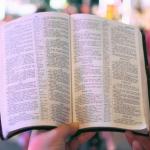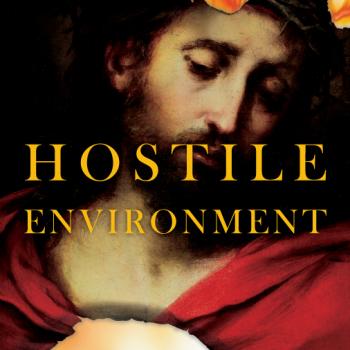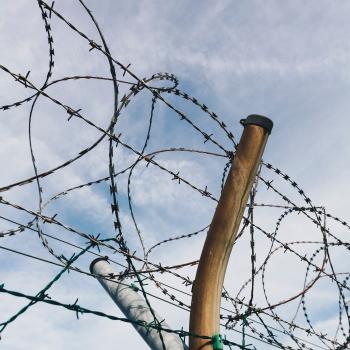Some complained about the Supreme Court Masterpiece Cakeshop decision as reaffirmation of religious based bigotry. Others complained about it not going far enough in promoting religious liberty. Perhaps a good legal ruling is one that irritates individuals on both sides of the controversy.
This decision did not decide the question about religious freedom and the rights of sexual minorities. However, one key element of the decision drew my attention. The court recognized how anti-Christian bias on the part of the Colorado Civil Rights Commission negatively impacted the chances of the defendant – Jack Phillips. I have done research on Christianophobia, and some individuals choose to ignore the data to say that it does not exist. But now the Supreme Court not only acknowledged its existence but also ruled that it can negatively impact Christians.
So as we consider threats to evangelicals, to what extent are the attacks on religious liberty dangerous to us? Well, threats inside religious groups are almost always more dangerous than external threats. Only we can compromise our values or fail to be committed to our faith. Others may influence us towards those ends, but no one can make us destroy our social movement. But this does not mean that we should ignore external threats to our religious freedom or that we cannot take measures to lessen the danger.
But first we need to know the nature of the threat to the religious freedom of evangelicals. That threat is nowhere near the threat faced by Christians persecuted in other nations. Indeed I have written in the past about the inadvisability of American Christians claiming that we are being persecuted. Discrimination and the attempts to marginalize us from the public square are more accurate description of our challenges.
The challenge to the religious freedom of Christians comes from those with Christianophobia defined as an unreasonable fear and hatred of Christians. In the United States they generally target conservative Christians. Those with Christianophobia tend to be white, male, wealthy, highly educated, politically progressive and irreligious. These qualities describe individuals with power in our cultural institutions such as academia, media and the arts.
So one of the threats to the religious freedom of Christians is that those who hate them the most have disproportionate impact on our cultural norms. Thus, given their proclivity to have Christianophobia, they are likely to support cultural norms which punish Christians. Christianophobia is not like other types of bigotry because of those with this social illness are different than other bigots. It is a psychological malady that is more prevalent among highly educated progressives who have built a social identity on their belief in their tolerance. These individuals do not like evangelicals but do not want to be seen as engaging in discrimination. The commissioners on the Colorado Civil Rights Commission are unusual in that normally such individuals tend to keep their bigotry hidden.
The way anti-Christian attitudes manifest themselves is generally though measures that concentrate on removing Christians from the public square rather than overt discrimination. A great example of this can be seen in the recent University of Iowa ruling. The university attempted to impose a rule by which student religious groups had to allow those nonbelievers to be leaders on a Christian group but not on a Muslim group. On the surface the administrators claimed that the rule is religiously neutral, but clearly they treated non-Christian groups differently than Christian groups. Non-Christian groups were to be allowed to have a cultural presence on the campus that was to be denied to Christians.
The way religious freedom for Christians is threatened in the United States is usually by barriers to their efforts to participate in the public square. This is not just seen in the attempt to have Christian student groups kicked off campus. We also see this in firing a lay pastor from a government job, driving an adoption agency out of business, efforts to not allow students from Christian schools to receive state educational funding and finally efforts to shut down Christian businesses with outrageous fines. These issues come up generally when Christians adhere to traditional moral and sexual values so they are more likely to impact evangelicals than other Christians.
We are not seeing Christians being thrown in jail or being stopped from holding religious services. Such efforts would not comport with the implied values of tolerance the educated progressives with Christianophobia profess to have. But efforts to “punish the wicked” who do not conform to the social and political desires of those educated progressives can justify policies with aversive effects on evangelicals.
So if that is the challenge, then how are we to handle it? Let me suggest that a big mistake made in dealing with these challenges is too much reliance on political power. Do not get me wrong. There are times where we have to fight for religious freedom for ourselves, and for others. There are also other important issues requiring our attention. But so much of the political efforts of evangelicals have degenerated down to a seemingly blind support of the Republican party. The support is so blind that it seems that no matter who the Republicans put forth there is pressure to support him or her. Witness our current president and the level of support from white evangelicals he enjoys.
We have to impact our culture if we want to create a society where religious freedom is respected for everyone – including us. And some of the political efforts of evangelicals have cost us the opportunity to impact the culture. For example, how can evangelicals talk of moral values when they are now the group who is most likely to overlook moral values when voting for president? Remember that the Children of Israel also looked for a king and were willing to compromise their values to obtain him. That effort did not end too well for them.
I started this article arguing that we can destroy ourselves internally more effectively than others can destroy us from the outside. Giving up our moral and Christian values to win elective office is one of the ways we destroy ourselves from the inside. We need to make sure that we are not corrupted by the temptation of political power. We need a voice in our political world, but we must use that voice in a much smarter way and limit our alienation of others.
Evangelicals have gotten used to being the most powerful religious group in our society. That is not going to be the case for the foreseeable future, if ever again. However, contrary to what some of our opponents are saying, we are not going to disappear in a secular tidal wave. I suspect, and data seems to indicate, that part of what is happening is that those with nominal Christian faith are choosing to no longer identify as Christians. This means that the percentage of the population who are Christian will be smaller, but those who choose to identity as Christians will be more committed to their faith.
So beyond politics, it is also important that we think about protecting ourselves by building up our community. If there are fewer of us, but those of us who are left are more committed, then we can make demands on each other that will strengthen our larger community. Groups that do not have majority group power do well to have a strong notion of community so that their subculture can thrive.
What are some of the implications of building up our vision of being a Christian community inside a larger secular society? We can develop a powerful in-group loyalty that allows us to help each other. We can develop supportive economic structures that serve our subculture. We can focus on socializing our children to be ready for the struggles of a post-Christian world. These are only some of the important ways having a community mindset can provide us with the social means to persist in a society that wants to remove us from the public square.
It can be as a community that we can renew a focus on reaching out to the marginalized. A powerful group tends to ignore those who struggle in our society. In a society where we no longer have majority group power, we can humbly use our in-group loyalty to work together so that we can better minister to those society left behind. Such efforts not only enlarge our community by bringing some of the marginalized into our community but also provides a powerful witness of love for the least of these.
Ultimately, it is going to be these acts of love and a true demonstration of the values we say we hold to help us deal with the threat to our religious liberty. Since the threat comes from a change of cultural values, we can begin to neutralize it by impacting the culture. And the best way to impact the culture is to have a Christian community where we are encouraged to live with integrity, transparency and to love those around us. Building the right type of Christian community is vital for what we need today, and that is why I have dedicated and will dedicate, more blogs addressing this concern.
It is naïve to think that even if we do this that everyone with Christianophobia will change their minds. Bigotry and prejudice has a remarkable ability to use confirmation bias to justify hatred. However, such actions can impact enough individuals that it will be harder to engage in some of the Christianophobic actions we have seen lately without great cost. And when non-Christians defend us not because they believe what we believe but because of how we care for others, then we will a truly Godly societal impact.












